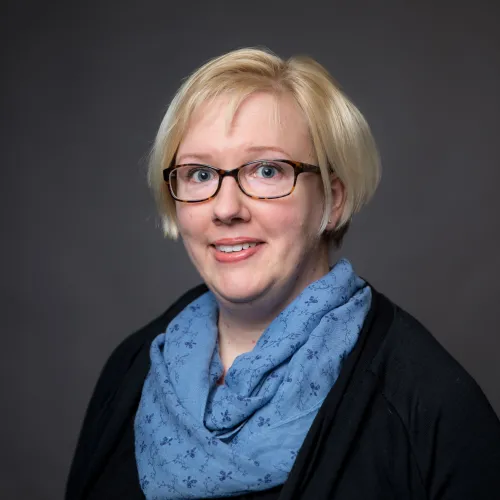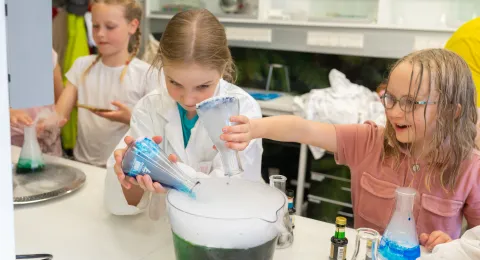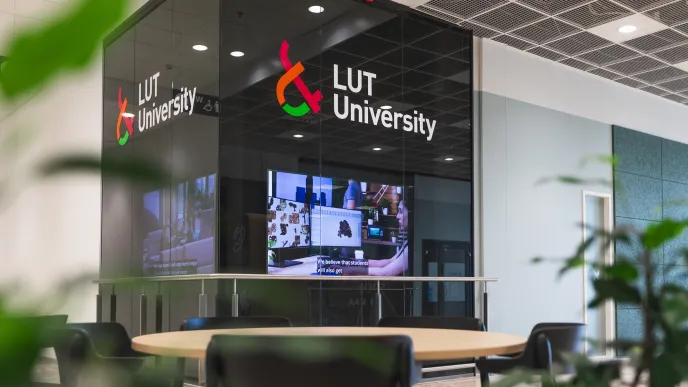Technology is deeply embedded in young people's everyday lives, yet fewer and fewer envision themselves working in the tech sector. This needs to change. LUT University is tackling this issue by raising young people's awareness about the exciting and diverse career opportunities in tech. For example, the Shaking up Tech event, TechnoTET workplace learning and Junior University all aim to inspire young people to enter STEM fields.
"Young people's waining interest in tech careers is largely because they don't know what engineering or similar roles actually entail. Their perceptions are often outdated or inaccurate," says Johanna Naukkarinen, Postdoctoral Researcher at LUT University.
Meanwhile, industries are experiencing an urgent demand for technology skills. It is therefore important to break down preconceptions about the technology sector and show young people more broadly what skills are required.
"Many have the wrong assumption that working in technology always requires a thorough knowledge of mathematics or physics. In reality, engineering is not just a solitary job working with machines, but requires interpersonal skills and versatile problem-solving abilities," says Anni-Elina Leinonen, Project Coordinator at LUT.
Diversity in the tech industry drives innovation and competitiveness
The tech industry feels particularly out of reach to girls and young people from migrant backgrounds. A lack of role models prevents many from seeing the sector as an option.
"Finland is still heavily divided into male- and female-dominated sectors, leaving a lot of skills and potential untapped. Many women have a lot to offer in the technology sector but have never thought of it as a viable option," Leinonen states.
Promoting diversity in technology sectors makes also economic sense, as research shows that heterogeneous workforces are more innovative and productive.
"Diverse customer and market knowledge is an advantage for businesses. If all work communities are made up of similar talent, the perspectives for solutions will remain narrow. This also harms Finland's competitiveness," Naukkarinen stresses.
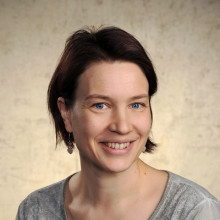
TechnoTET introduces the world of technology through workplace learning
LUT actively works to increase young people's knowledge and interest in technology. For example, the TechnoTET South Karelia project offers 9th graders and secondary school students the opportunity to get to know the world of technology through the introduction to working life, or TET.
"TET is part of a student’s life, so it's a natural way to reach young people. The project allows young people to see how varied and interesting career opportunities are in the technology sector," says Leinonen.
During their traineeship, 9th graders are first introduced to the different fields of technology in workshops at LUT and then move on to a four-day work placement in a partner company. LUT facilitates cooperation between schools and companies and handles the practical arrangements.
"The project makes it easier for technology companies to take on TET trainees. We have prepared material for companies to use in the design and implementation of the TET programme if they wish," Leinonen adds.
The Switch, a developer of renewable energy technology solutions especially for the marine industry, has been involved in TechnoTET for the past two years. The company wants to help young people understand that career paths in the technology sector can be different and that people can also grow and train for new roles alongside work.
"We have received a lot of positive feedback from participants. Working with young people is rewarding - they bring the opportunity to think about things from a new perspective," says Mari Puhakainen, HR & Administration Specialist at The Switch.
Shaking up Tech event challenges stereotypes of the tech sector
LUT collaborates with other universities in the annual Shaking up Tech event, which gives young people a hands-on experience of technology and science. The event, aimed especially at young women in secondary school and non-binary individuals, offers the opportunity to hear from experts, participate in workshops and discuss current technology issues.
"The event is a great example of how universities can work together to provide important opportunities for young people to learn more about working in tech and break down stereotypes," Naukkarinen says.
According to Naukkarinen, in addition to young women and non-binary individuals, young people from immigrant backgrounds or with neurological disabilities do not apply to study technology often enough. Providing young people with concrete, hands-on experience boosts their confidence and interest in technology.
"The future needs everybody. Our aim is to create an environment where young people, whatever their background, can see themselves as part of the technological world and contribute to its development," she stresses.
Shaking up Tech – Inspiring young people to the tech sector
What?
An event to explore the opportunities in engineering through inspiring talks, workshops, study and career fairs.
For whom?
Young women in high school and non-binary people who are considering a future in engineering.
Where and when?
The event will take place on 23 January 2025 simultaneously at Aalto University, LUT University, the University of Oulu and the University of Turku.
In cooperation with:
ABB, Bittium, Borealis, Eaton, Fortum, Kemira, Metsä Group, Nokia, Saab, SSAB, Tekniikan akateemiset TEK, Teknologiateollisuus ry, Valmet, Wärtsilä
Read more: https://shakinguptech.aalto.fi/en
Junior University provides students with experiences in the world of science
Through Junior University, LUT offers children and young people opportunities to learn about science and technology. It offers students activities both in and out of as well as teachers with further training to update their know-how.
The mission of Junior University is to provide children and young people with equal opportunities to learn and have positive experiences in the world of science and technology. Participants have had the chance to paint artworks using Sphero robots dipped in finger paint, learn about programming and robotics, and study the presence of microplastics in the waters of Lake Saimaa.
The workshops and other activities not only stimulate young people's interest in technology but also strengthen their learning skills.
"We organise activities on LUT premises, in schools, and through remote workshops. This way, we can open up learning opportunities regardless of location," says Nina Kykkänen, Service Manager at LUT and Team Leader at Junior University.
The curriculum draws extensively on the expertise of LUT and LAB, involving both teachers and students to enrich the content and provide a broader perspective.
"The activities inspire students to learn and open doors to new interests. Students can combine the benefits of technology with different aspects of life or what they are passionate about, such as music and art," Kykkänen says.
Junior University - Diverse science and technology education for all ages
What?
Junior University offers science and technology education through workshops, camps, field trips and company visits. These activities give young people hands-on experience in the world of science and technology.
For whom?
The activities are aimed at children and young people from early childhood to secondary school. There is also training and events for people working in education.
How and when?
Junior University works in cooperation with educational institutions in the Lappeenranta, Imatra and Lahti regions and the LUMA Centre Finland network. It is open all year round and is integrated into the school curriculum.
TechnoTET - A gateway to a career in technology
What?
TechnoTET offers a four-day work introduction to working life in partner companies, giving young people a hands-on experience of working as technology experts. In addition, the TET period includes functional workshops that explore a wide range of opportunities in the field of technology.
For whom?
Comprehensive and secondary education students, especially young people from minority groups.
Partner companies:
ABB, Danfoss, Enersense, Etteplan, Fazer, Finnsementti, Granlund, Laitex, Loihde, Metso, Metsä Group, Nordi, Ovako, Ramboll, Roxia, Sitowise, The Switch, UPM, Valmet, Visma
Financing:
The project is supported by the European Social Fund and participant data will be reported anonymously through the EU EURA 2021 system.
More information:
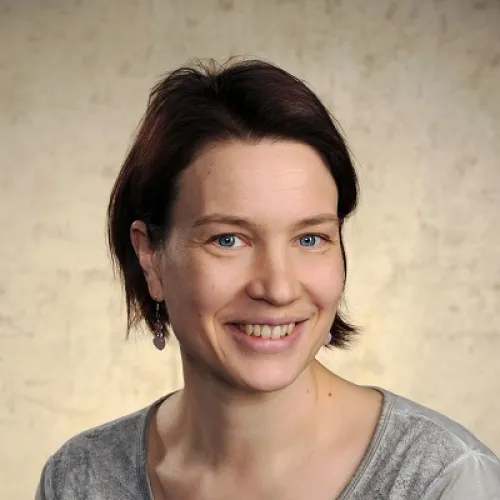
Johanna Naukkarinen
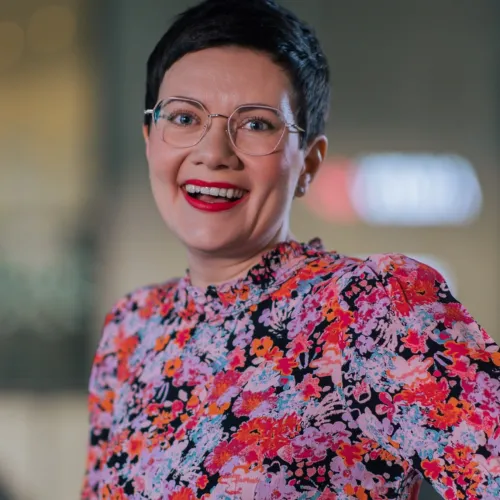
Anni-Elina Leinonen
